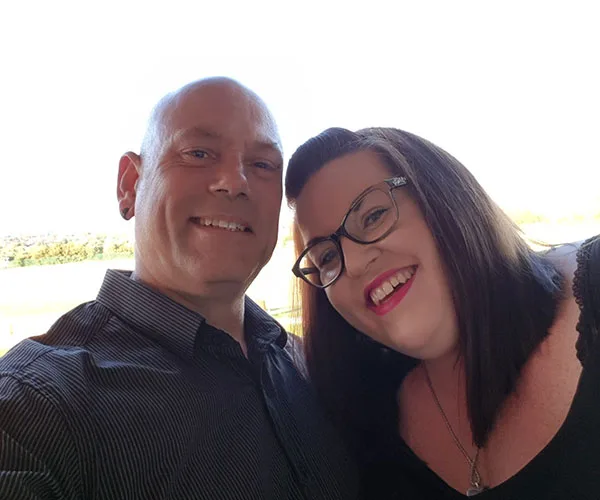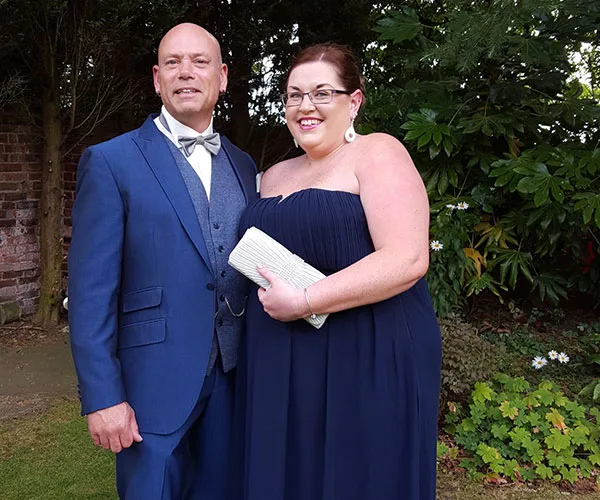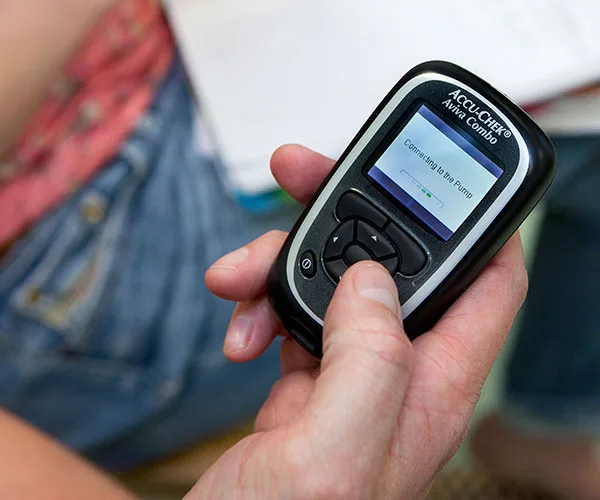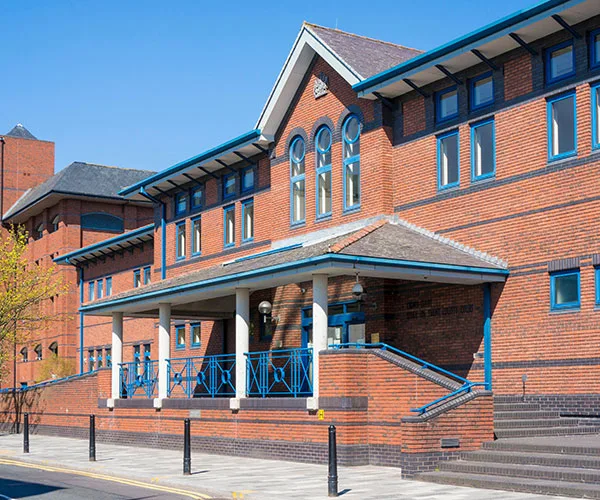Derek Turner, 50, shares his story with Take 5:
As I stepped into the pub, it felt like the sun had come out from behind the clouds.
I’d been feeling low but the moment I saw the barmaid’s beaming smile, my spirits lifted.
“The usual?” she asked.
“Please,” I said, grinning.
She poured me a drink and we got chatting.
I’d been having a tough time since the breakdown of my marriage, but Laura had a way of making me feel better.
Although there were 17 years between us, we had a lot in common.
And the more I got to know her, the more I liked her.
Eventually, I plucked up the courage to ask her out.
“I’d love to,” she replied.
I was thrilled and our relationship quickly blossomed into love.
But a year later, I started feeling unwell.
“I’m exhausted all the time and I’m losing weight,” I told Laura. “Something’s not right.”
I went to the doctor, where a blood test revealed something shocking: I had type 1 diabetes.
There was no cure and I needed regular doses of insulin to stop my blood sugar getting too high.
But it was a fine balance – too much insulin and I was at risk of becoming hypoglycaemic and slipping into a coma.

I had thought Laura and I were happy.
(Image: Supplied)It was terrifying.
However, I didn’t have any choice but to accept it and learn to live with the condition.
Over the next few years, I got used to checking my blood sugar levels throughout the day.
I was fitted with a cannula tube in my stomach and given an electronic pump that would monitor my levels and administer my insulin.
The pump plugged into the cannula, but I also had another device that could deliver the insulin via remote control.
Through it all, Laura was a big help, making sure I stayed healthy and getting me to hospital if my blood sugar dropped dangerously low.
Like every couple, we had our ups and downs and silly arguments – usually after she’d had a few too many drinks, but I loved her and she loved me.
After 11 years together, I proposed and she accepted. Soon after, though, things changed.
Our arguments became more frequent and more heated. We often wound up shouting at each other.
It was exhausting.
One night, after Laura had drunk a whole bottle of wine, we started to squabble again.
I wanted to take my grown-up daughter to dinner to celebrate her first wedding anniversary, but Laura wasn’t happy.
“We’ve already bought her a present,” she said. “We need to be saving money.”
“If I want to take my daughter for a meal, then that’s what I’ll do,” I replied.
But Laura wouldn’t let it go.
By now, she was on to her second bottle of wine and the booze was making her angrier.
“Look, I don’t want to argue anymore,” I said. “I’m going to bed.”

Our relationship soon blossomed.
(Image: Supplied)I went upstairs hoping she’d cool down.
In the bedroom, I checked my blood sugar levels as normal and gave myself the right dose of insulin to keep me safe throughout the night.
Then I plugged the pump into the cannula in my stomach.
I knew Laura was still drinking downstairs, so I decided to stay up reading and check on her in an hour or so.
I climbed into bed and opened up Terry Pratchett’s fantasy novel Night Watch.
I got so lost in it that I barely noticed as the device on my stomach started to vibrate.
Then it beeped.
I looked down at the screen and frowned.
It was administering insulin.
That’s odd, I thought.
I hadn’t programmed the pump to give me any more during the night, because I’d already topped up my levels.
Then, I remembered.
The other device was downstairs in the living room.
It could be used to administer my insulin remotely.

I relied on the device to help keep me alive.
(Image: Getty Images)My blood ran cold.
She wouldn’t, I thought.
But I had to be sure.
I pulled the cannula to stop the flow of insulin and then, quietly, I crept down.
As I burst through the living room door, Laura jumped and quickly stuffed something behind a pillow.
But she was too slow.
I reached over and grabbed the device from her hand.
“You could have given me an overdose,” I said. “Why would you do that?”
“Because you were being a knob,” she slurred.
I stared at her open-mouthed.
Laura knew how dangerous it could be if I had too much insulin.
She’d been there when I’d become hypoglycaemic in the past.
She’d watched me having diabetic fits, helpless and unconscious, and been the one to call an ambulance.
My heart was beating wildly in my chest.
I went back upstairs and checked my insulin levels.
Laura had given me 24.5 units of insulin – more than I’d ever had before.
I called the emergency services.
“My fiancée has given me an overdose of insulin,” I told the operator.
As I waited for an ambulance to arrive my head spun.
Laura and I had our fair share of arguments, but had she really wanted to do me harm?
Eventually, there was a knock at the door and the sound of footsteps coming upstairs.
It was the paramedics and soon after, the police arrived.
My blood sugar levels were checked and found to be dropping.
“It was a good thing you were awake,” one of the paramedics told me.
As the police spoke to Laura, I could hear her yelling.
“I didn’t do anything wrong!” she shouted.

The matter went to court – but it was still hard for me to believe.
(Image: Supplied)But she was arrested and taken for questioning.
Meanwhile, I was taken to hospital to be monitored overnight.
The next day, Laura Hopkin was charged with administering a poison or noxious substance with intent.
She denied it, meaning there would be a trial.
She never tried to apologise and we barely spoke again.
Our relationship was over and she moved in with her parents.
On the day of the trial, she changed her plea to guilty.
In court, her lawyer claimed she’d acted in a moment of madness after drinking too much.
But I didn’t buy it. Laura knew what she’d done and she could have called an ambulance, but she didn’t.
Still, I urged the judge not to send her to jail and he listened to me.
She was sentenced to nine months in prison suspended for 18 months.
Laura never gave me a reason for her actions.
Her lawyer said it was out of character and that she was sorry.
All I can do is put it behind me and move on.
I’ve now met someone new, but what happened that night will haunt me forever.
I loved Laura and I wanted her to be my wife, but she tried to poison me.
If I’d gone to sleep that night, I may never have woken up.
.jpg?fit=900%2C750)

